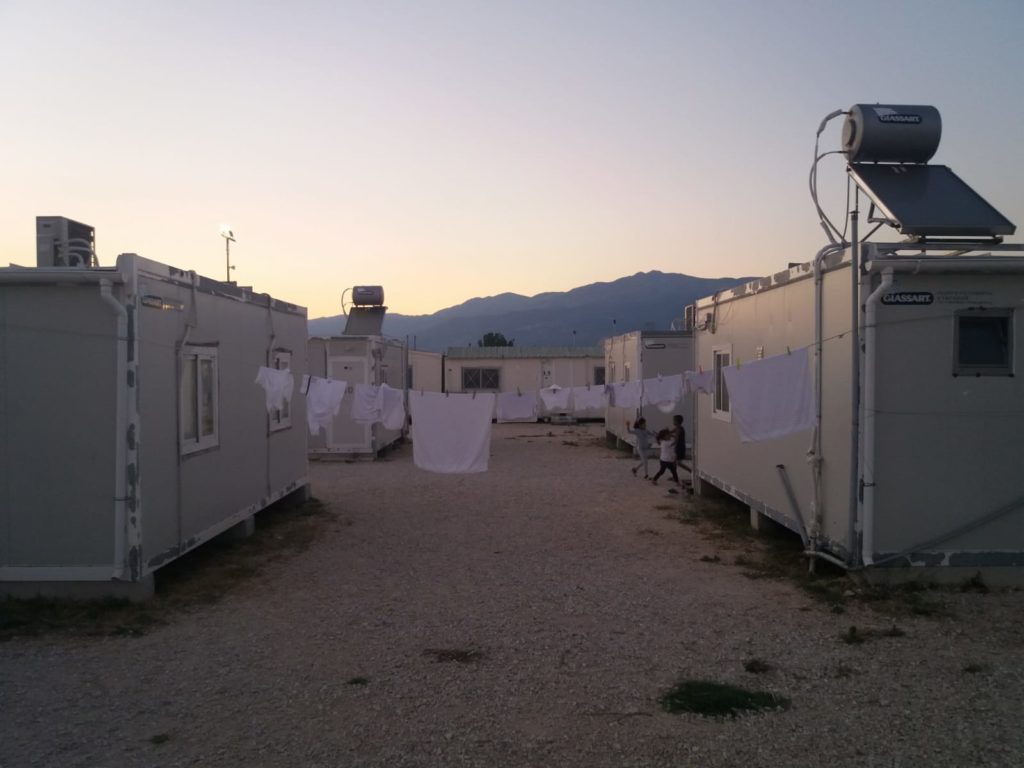A recent change in the asylum regulations by the Greek government threatens several thousand people with homelessness. The new regulation reduces the 6-month-period recognised refugees used to have to leave their accommodation in camps and apartments to 30 days. This change forces the accepted asylum seekers to find housing on their own within little more than four weeks. Not only the access to the accommodation scheme, also the small financial support for asylum seekers now ceases after one instead of six months after a positive decision in their case. These new developments are already affecting around 9000 persons who have been living in refugee camps and accommodations all over the country. Looking at the camp of Katsikas, near our current project Habibi.Works, 180 people were supposed to leave their place in the camp’s containers by June 1st, after an additional grace period of one month had been given to them due to the lock-downs in April and May. Having an eye on the bigger picture in Greece, these measures are going to affect another 11.000 people in the next two to three months, putting men, women and children at risk of homelessness.
We are extremely concerned about these measures. The fact that spaces are urgently needed in the accommodation scheme for asylum seekers can’t be denied, especially in the overpopulated camps on the Greek islands. And we agree that independent living is extremely important as a step towards integration. But shifting the problem from the islands to the mainland and the factor of social exclusion from camps to homelessness will not improve anything. No programs have been in place to prepare and accompany people during this transition. Most of the people accommodated in camps have been living in a parallel world, excluded from and to large extends invisible for the local communities. No official language classes have been in place, no efforts have been made from side of the Greek government to integrate men, women and children. Even the formal education in schools, a basic human right for every child, has not been granted to big percentages of the children and teenagers for long periods of time during the last years.
In a country that struggles with an unemployment rate of 18.8% and the highest youth unemployment rate in Europe (around 40%), it is going to be near impossible for most of the thousands of persons who will find themselves on the streets to find jobs. Without a stable income and without the language necessary to communicate, it is highly unrealistic that people will find accommodation on their own – even more so within only 30 days.
The support offered through the social welfare schemes in Greece is minimal, hard to access even for Greek nationals and doesn’t offer enough support for a dignified life for anybody. People living in refugee camps have the additional disadvantage that they are not aware of the existence of the social welfare system and the steps necessary to access it. Besides the lack of language and the lack of information, it is also the lack of a social network within the Greek society that makes it difficult for people to take steps on their own.
In a recent statement of UNHCR, the refugee agency warns that „Forcing people to leave their accommodation without a safety net and measures to ensure their self-reliance may push many into poverty and homelessness“.
In 2019, the HELIOS program had been put into place to supplement the big financial gaps people were facing after six months. Due to a lack of flexibility and support where it was urgently needed (like finding landlords who are willing to rent to migrants and refugees and bridging the language gap), the program has failed to fulfil its promises and aims. New programs need to be set up, assisting people in their search of accommodation in the Greek society, informing them about their rights and possibilities within the Greek system, offering language and integration classes and facilitating access to education. Besides the need of the Greek government to assume responsibility and create sustainable solutions, it is the European Union that has to take charge of people arriving at the European borders, instead of ducking away behind the southern Mediterranean countries.

